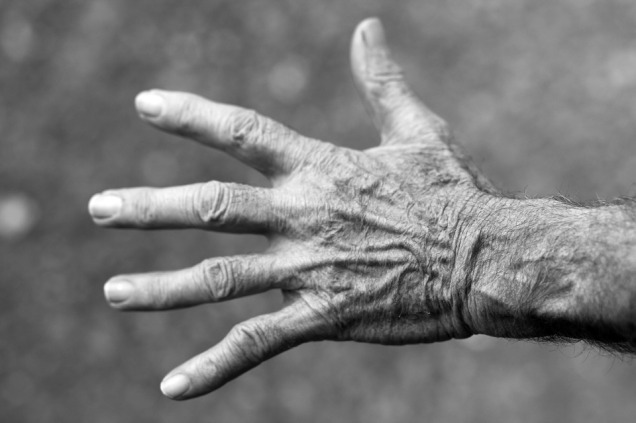Memento mori: a Latin phrase that translates to ‘remember that you have to die’.

It may not appear quite as inspiring as carpe diem (‘pluck the day’ or ‘seize the day’), but it nevertheless conveys the same ineluctable certainty: our days on this earth, however many or few, are finite. Though we apprehend this truth of our mortality, we don’t really comprehend it. As Frederick Buechner points out,
Intellectually we all know that we will die, but we do not really know it in the sense that the knowledge becomes part of us. We do not really know it in the sense of living as though it were true. On the contrary, we tend to live as though our lives would go on forever. We spend our lives like drunken sailors. (1969, p. 72)
Perhaps we don’t truly come to grips with the ephemerality of life until we first come face to face with our own mortality or see its reflection in those close to us when our bodies or minds become touched by the shadow of illness, injury, or aging.
When we respond to the suffering of others, assuming we choo se to acknowledge and step into that space of weakness and imperfection, are we not in some manner also responding to ourselves? Christianity teaches “love your neighbor as yourself” and Buddhism has an expression about seeing yourself in others.
se to acknowledge and step into that space of weakness and imperfection, are we not in some manner also responding to ourselves? Christianity teaches “love your neighbor as yourself” and Buddhism has an expression about seeing yourself in others.
In our response to human suffering, we might say, “That could be…will be…is me.” Or in the words attributed to John Bradford, the old English reformer and martyr, “There, but for the grace of God, go I.” How introspective and compassionate we are!
How patronizing and cruel.
W.H. Auden remarked, “all pity is self-pity.” If we’re truthful, we may admit that we’re at least partly uncomfortable because we’re instinctively selfish; we can’t help but make all suffering about our reality and our feelings. Seeing other people’s worlds disturbed in turn upsets the comforting equilibrium of our own. We want other people to feel better because we also want to feel better. Psychologists refer to these as ‘egoistic motives’ (i.e., self-benefiting) — in contrast to ‘altruistic motives’ (i.e., other-benefiting), which are more empathic and focused on helping the other person (Baumeister & Vohs, 2007).

When faced with suffering, do we respond with banal platitudes (“You’re in my thoughts.” “I’m sending ‘positive vibes’!”) and half-meant promises (“I’ll visit.” “I’ll be happy to help out if you need anything.”) — or can/must we offer something more? Does fear prevent us from getting too close physically or emotionally? How much of a personal connection or commitment beyond this moment are we willing to make?
But perhaps this moment is enough. In consideration of our own mental and emotional space or our other constraints, maybe it is all right to be content with the limited portion that we have to give. If we’re not prepared to risk ourselves, and if others are reluctant or unwilling to accept what we have to offer (especially if offered unwillingly or falsely), then self-condemnation would achieve little for either party.
Then again, what if such rationalizations are not “good enough”? Though meant to spare others, aren’t they really meant to spare us from our own personal discomfort with the suffering of others? What if such rationalizations are not good enough for other people who are most in need of sustained human connection — or for us, who may also be in need of human connection…with this person?
It’s rather presumptuous of us to assume that those who are suffering have nothing of value to contribute to our lives. Yet neither do they exist to assuage our guilt; nor is it theirs to grant us sainthood or to help us rack up ‘karma points’.

Over four decades ago, the author Madeline L’Engle had this to say about the attitudinal and interpersonal struggles surrounding old age, illness, and dying:
As for me, when my time comes, I’d like to be put out on an ice floe.
I heard a doctor say that the living tend to withdraw emotionally from the dying, thereby driving them deeper into isolation. Not to withdraw takes tremendous strength. To pull back is a temptation; it doesn’t hurt nearly as much as remaining open. […] There is always the memento mori, the realization that death is contagious; it is contracted the moment we are conceived. […]
I always took a bath when I got home from the hospital.
It takes a tremendous maturity, a maturity I don’t possess, to strike the balance of involvement/detachment which makes us creatively useful, able to be compassionate, to be involved in the other person’s suffering rather than in our own response to it. False compassion, or sentimentality, always leads us to escape by withdrawing, by becoming cold and impassive and wounding. (1972, pp. 117-120)
I appreciate her honesty. L’Engle’s phrase, “which makes us creatively useful” continues to captivate me. I need to give more thought to what it means to be useful to others in ways that are not always obvious or predictable, but in those that are unexpected, thoughtful, imaginative, inspired, original, inconspicuous.
 I don’t see memento mori as grim or depressing. I see it as a reminder that we have before us the task of sorting through the detritus of everyday life to ascertain what ultimately does and does not matter.
I don’t see memento mori as grim or depressing. I see it as a reminder that we have before us the task of sorting through the detritus of everyday life to ascertain what ultimately does and does not matter.
It appears this business gets easier as time gets shorter. Atul Gawande (2014) in his book, Being Mortal: Medicine and What Matters in the End, explains how “socioemotional selectivity theory” developed by Stanford psychologist Laura Carstensen gives some insight into the value of close social relationships. Essentially, the theory posits that as people progress toward the end of their lives, they become more selective about how they invest in emotionally meaningful goals and relationships. This allows them to maintain positive emotional regulation:
…how we seek to spend our time may depend on how much time we perceive ourselves to have. When you are young and healthy, you believe you will live forever. You do not worry about losing any of your capabilities. People tell you “the world is your oyster,”
…when you see the future ahead of you as finite and uncertain—your focus shifts to the here and now, to everyday pleasures and the people closest to you. (Gawande, 2014, pp. 97-98)
So, here’s to memento mori, becoming less afraid, growing emotionally mature, investing in emotionally meaningful relationships, being creatively useful, and staying playful.

References
- Baumeister, R. F., & Vohs, K. D. (2007). Encyclopedia of social psychology (Vol. 1). London: SAGE.
- Buechner, F. (1969). The hungering dark. New York: Seabury Press.
- Gawande, A. (2014). Being mortal: Medicine and what matters in the end. New York: Henry Holt and Company.
- L’Engle, M. (1972). A circle of quiet: The Crosswicks journal (Vol. 1). New York: HarperCollins.